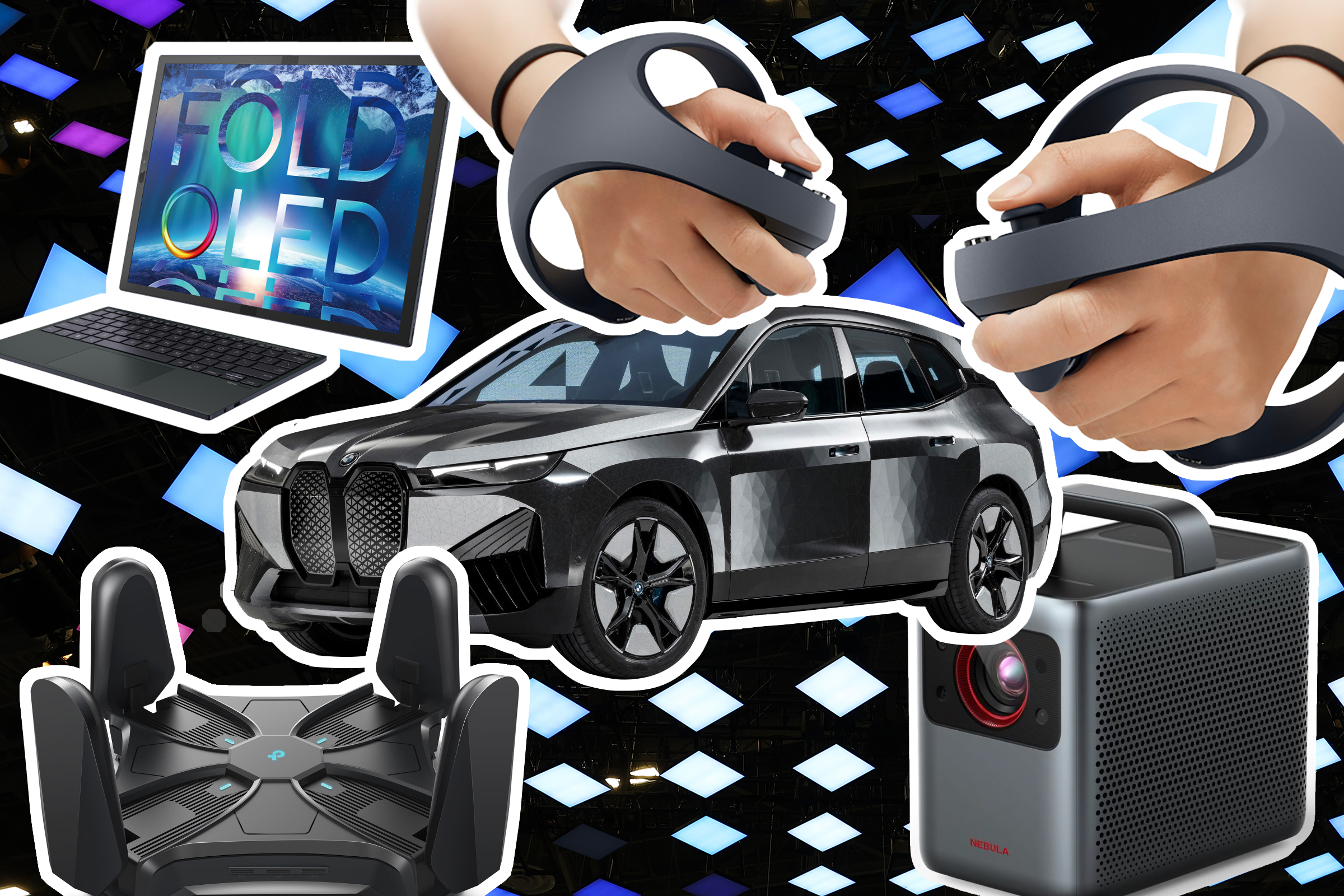
As COVID-19 cases continue rising due to the rapid spread of the Omicron variant, this year’s CES was once again different from years past—some in-person events went on as planned in Las Vegas, but several big names in the tech world, like Google, Intel and Microsoft, took their announcements virtual instead.
Still, that doesn’t mean CES 2022 was without its share of high-tech splendor. Those who did show up in person—or logged on to the virtual announcements—were treated to innovations ranging from BMW’s color-changing SUV to Razer’s cutting-edge modular PC concept.
Here’s TIME’s Best of CES 2022:
The BMW iX Flow
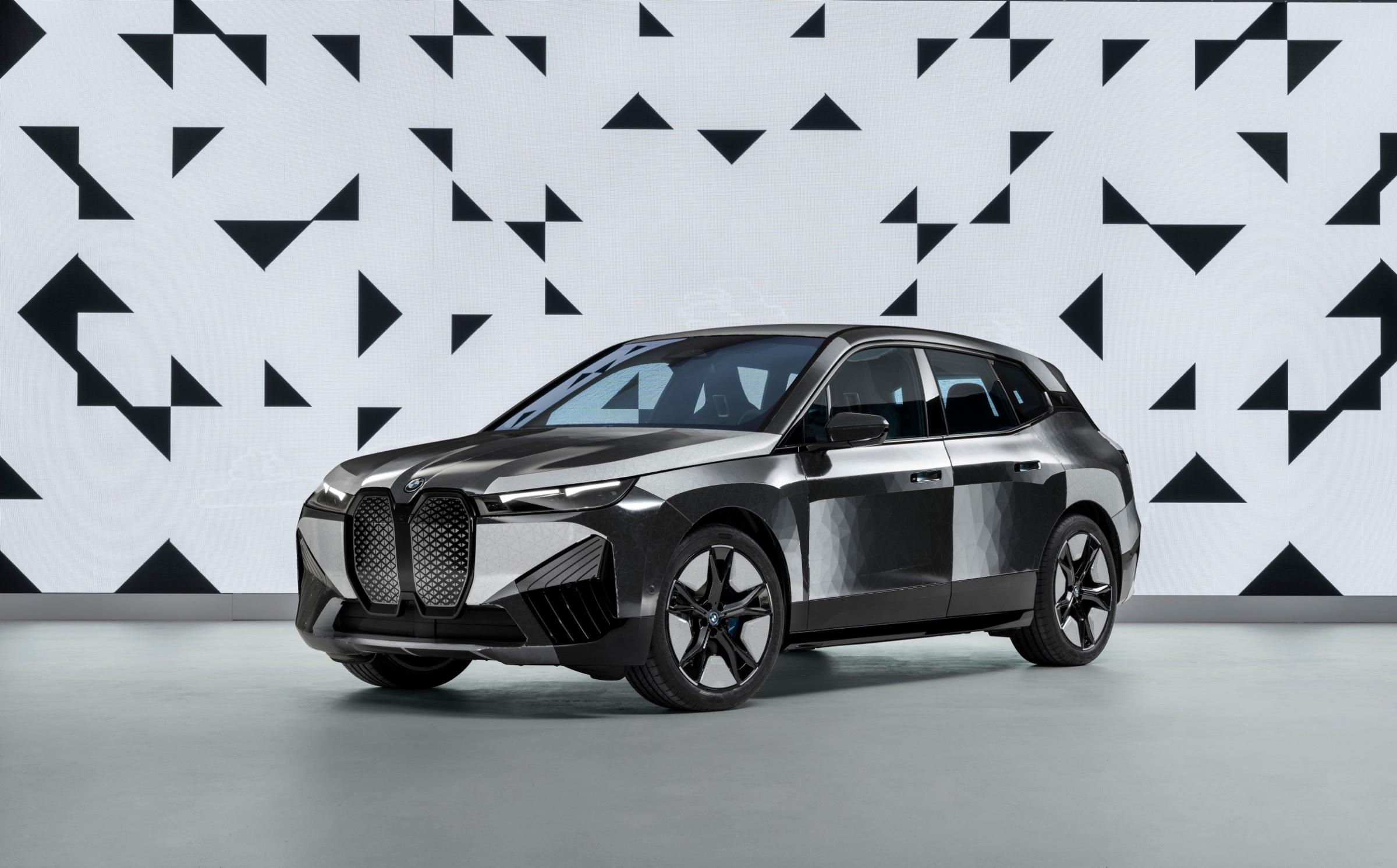
With a trick that looks right out of a James Bond movie, German automaker BMW’s new electric iX Flow uses e-ink technology to completely change its color scheme from black to white and anywhere in between; it can also showcase complex patterns and designs. While the IX Flow’s color options are limited to the same grayscale gamut you’ll find on your e-ink reader, the tech has benefits beyond the cosmetic: on a hot day, drivers could reduce the car’s interior temperature by switching from black to a more reflective white option.
The TP-Link AXE200
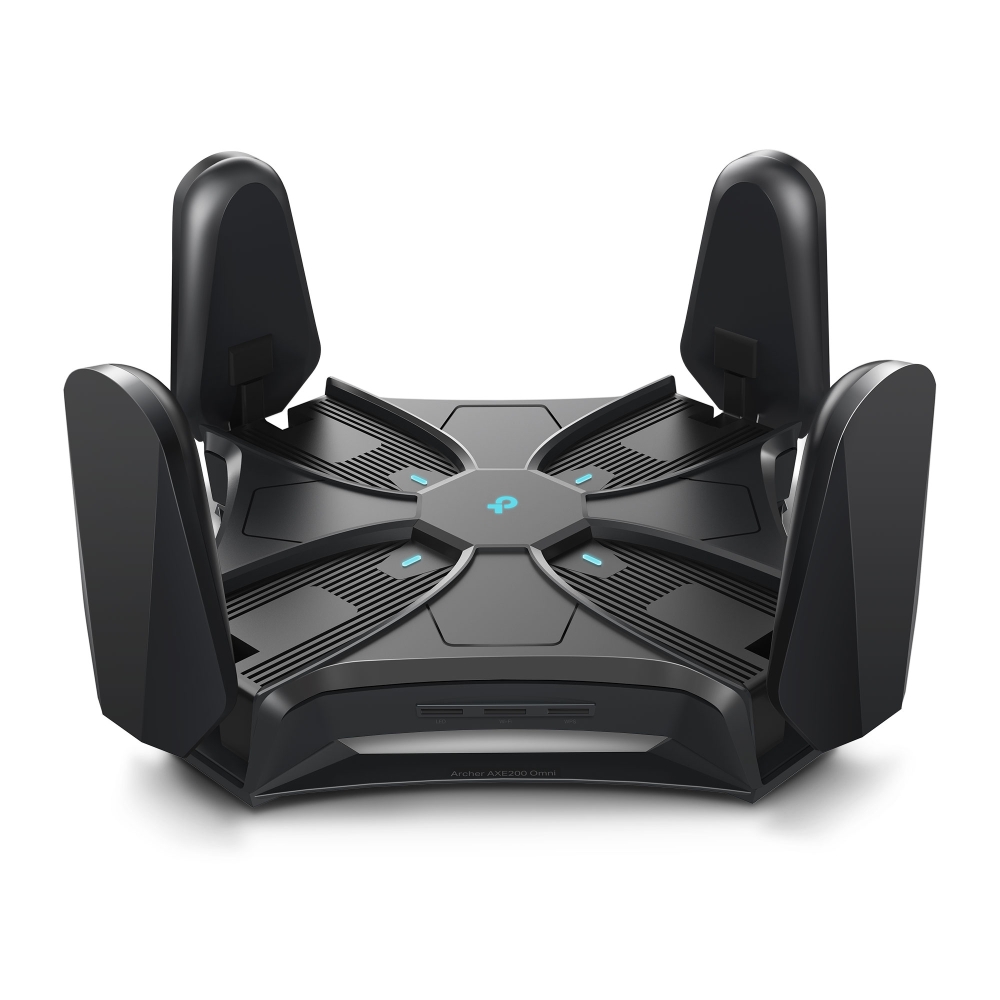
Sure, mesh network routers are the new media darling when it comes to home internet, but have you considered a router that literally moves its antennae to give you the best signal? Looking like a gadget from a Christopher Nolan film, all four of the antennae on TP-Link’s new AXE200 router move based on whichever position offers users the best signal. It’s a great idea in theory, and we’re eager to test its real-world performance.
The AXE200 is packing some serious networking heat, too. It’s tri-band (supporting 5GHz, 2.4GHz, and 6GHz), and can be dropped into a compatible mesh network. It also features Wi-Fi 6E, the newest Wi-Fi Alliance standard, meaning the AXE200 Omni can boost speeds and reduce latency for supported devices.
Sony PlayStation VR2
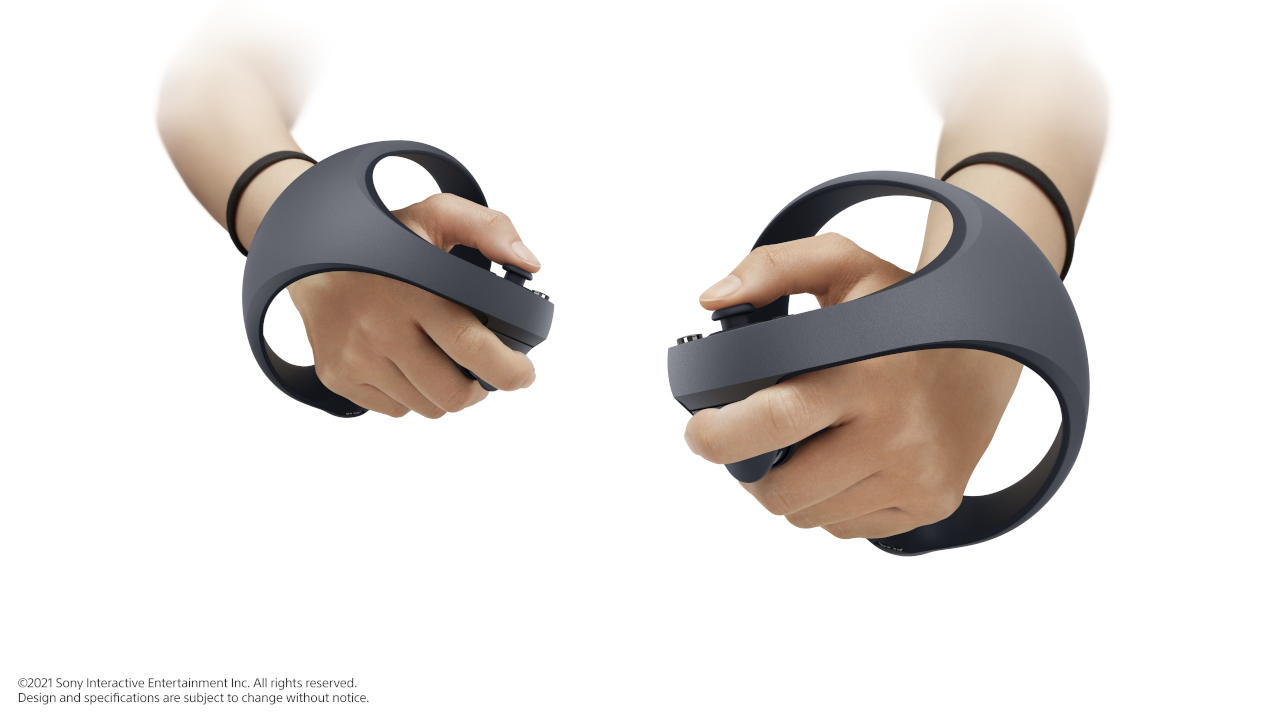
This CES, Sony is reviving a cult favorite among gamers: the PlayStation VR platform. Built for the PlayStation 5, Sony’s new PlayStation VR2 headset and Sense controller will take advantage of the new console’s processing power to provide a more high-resolution experience compared to the previous model. The new headset is full of high-end features, like a 4K OLED HDR display and eye tracking for improved realism. Sony’s new Sense VR controllers, meanwhile, offer more tracking fidelity without needing a camera pointed at gamers, similar to the controllers found on Facebook’s Oculus Quest 2 VR headset (though Sony says the PlayStation VR2 will require a cable).
Razer Project Sophia
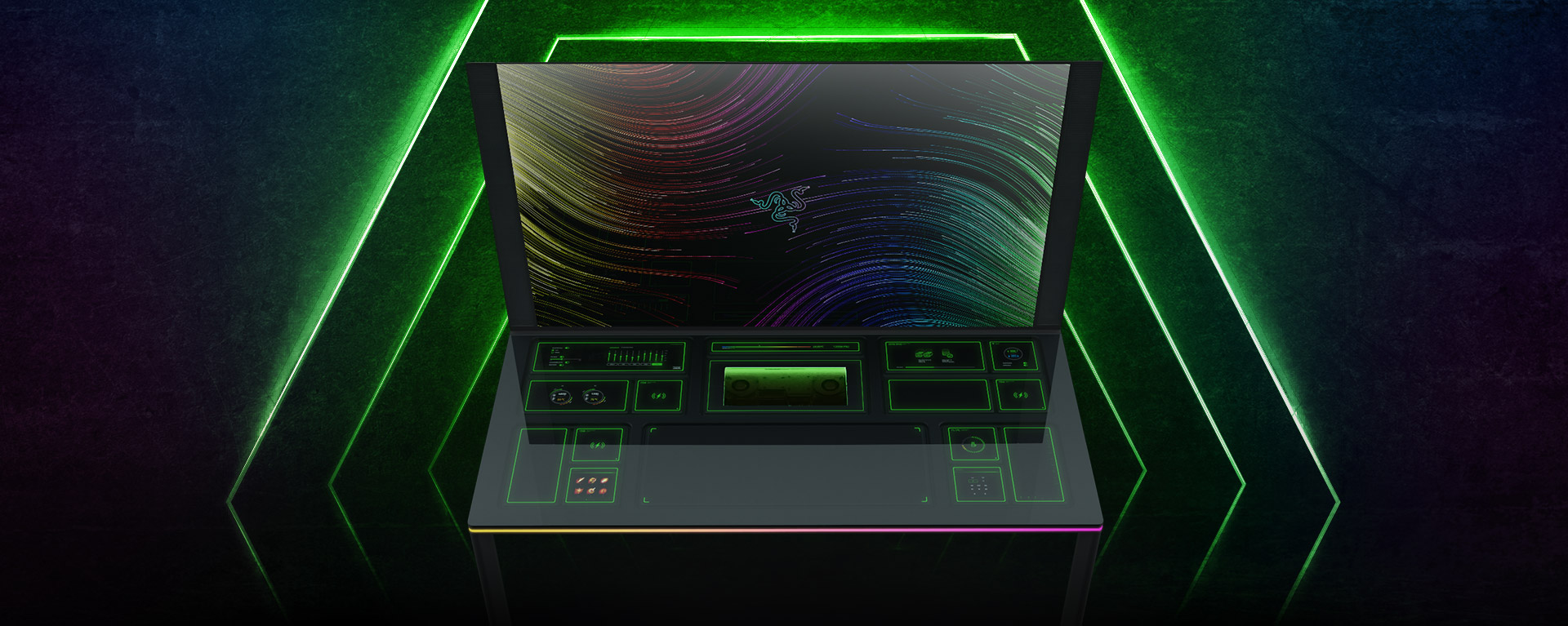
A desk with embedded modular components, Razer’s new cutting-edge Project Sophia PC concept would allow users to swap parts and modules like displays, USB hubs or wireless chargers. It’s not the first time the company’s tried to make the PC more modular—last year, it showed off a more practical design using Intel’s miniature NUC, essentially a tiny CPU and motherboard combo. And its 2014 PC concept, Project Christine, gave us a glimpse at a possible PC future that made upgrading major components as easy as changing a roll of toilet paper.
Does that mean you’ll be getting a cutting-edge modular PC anytime soon? Well, no, this is only a concept for now. But when it comes to the envelope-pushing spirit of CES, Razer always delivers.
General Motors’ Silverado, Equinox and Blazer EVs
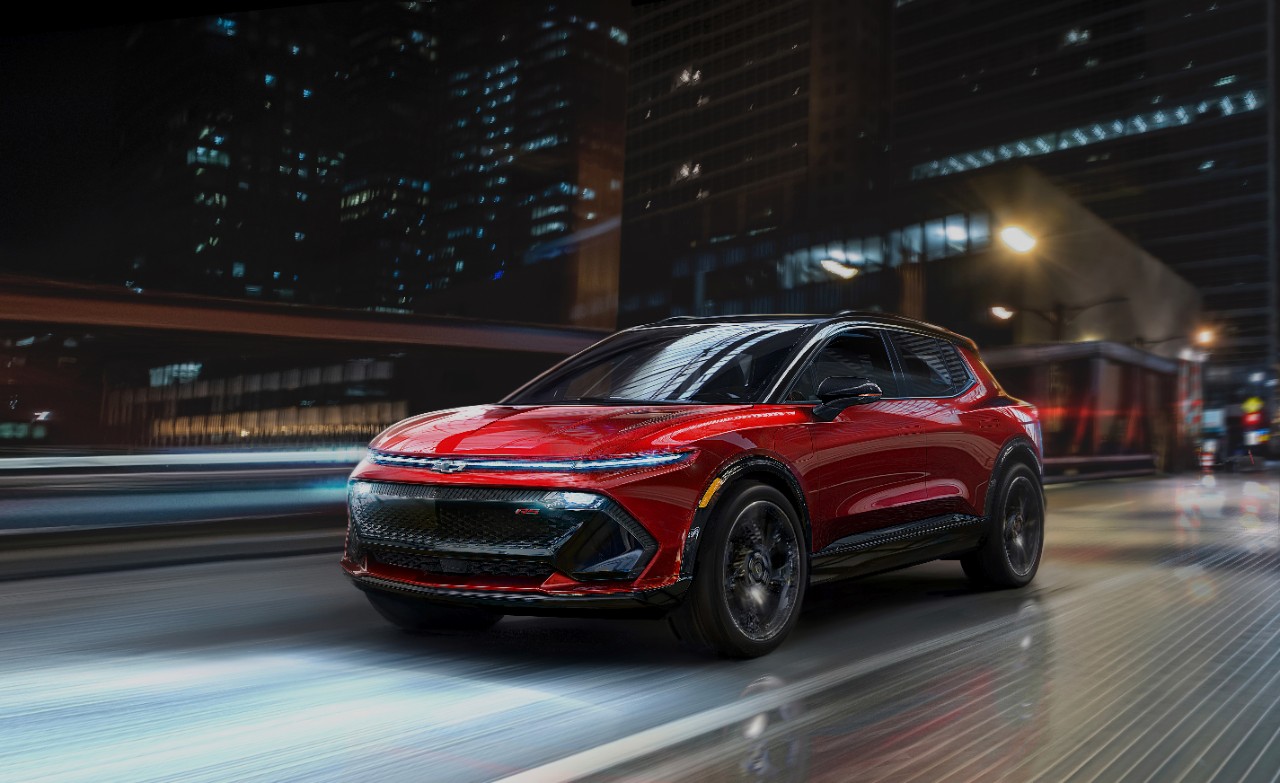
If you’ve been hoping for a relatively affordable, no-sacrifices electric vehicle, General Motors has you covered. This CES, the company announced a trio of all-electric vehicles with similar looks and range as their gasoline counterparts: the electric Chevy Silverado pickup truck, along with the Chevy Equinox and Blazer, two electric SUVs set to arrive in 2023.
The best part? The prices. The Equinox will cost around $30,000—not the cheapest car, of course, but an affordable electric model rivaling more expensive options like Tesla’s Model X and Ford’s Mustang Mach-E. It’s also not bad to look at, which could spur further adoption.
Asus Zenbook 17 Fold OLED
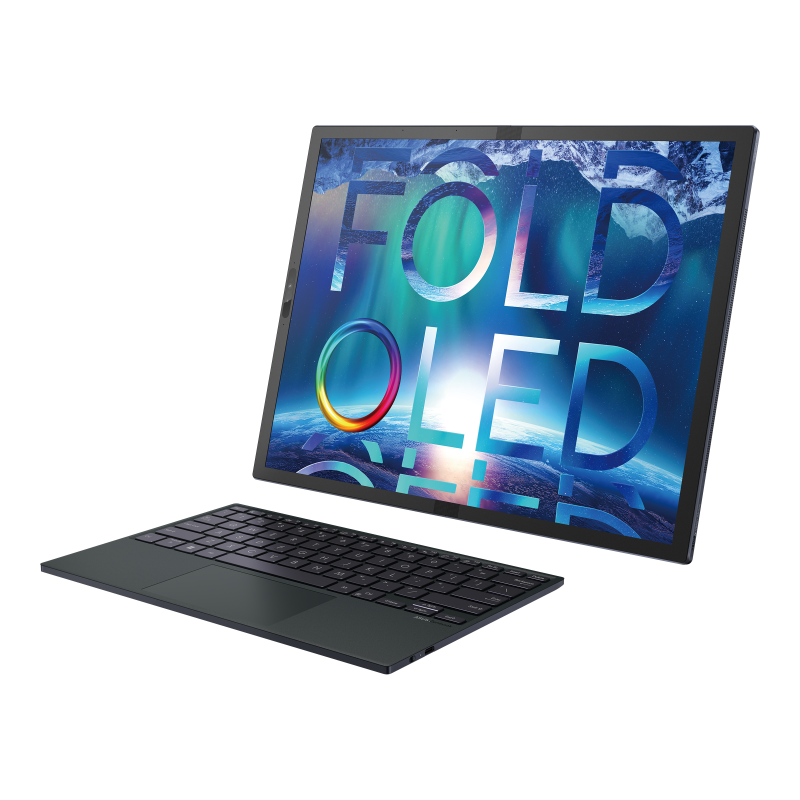
Is it a tablet? A laptop? A big folding Netflix screen? No matter how you slice (or bend) it, Asus and its Zenbook 17 Fold OLED is upping the cool factor when it comes to laptop design. It’s not the first folding laptop we’ve seen, but it might be the first with a screen that makes us actually want to use one—its 17.3-inch display is all OLED, meaning vivid colors and great contrast. With the folding Zenbook and its travel case, it’s easy to carry around a screen bigger than some desktop monitors, while the detachable keyboard make it a productivity porterhouse, too, giving you a great desktop-like experience almost anywhere.
Nvidia RTX 3050 Graphics Card

Nvidia, the chipmaker whose cards power everything from gaming consoles to self-driving cars, used CES 2022 to introduce the next iteration of its consumer-friendly graphics cards. The RTX 3050, relatively affordable at $249, fill a major gap in Nvidia’s lineup, and makes cutting-edge graphics technology like ray tracing more accessible to those who can’t fork over more than twice that amount for top-of-the-line cards. These cheaper cards should also help gamers and PC builders actually find stock in an era when graphics cards keep getting snatched up by cryptocurrency miners who use them to get valuable digital coins like Bitcoin and Ether.
Samsung’s NFT TVs

NFTs—essentially digital art bought and sold on the blockchain—are all the rage these days. But how do you display them in the real world? Samsung has an answer in the form of its latest TV lineup, which will come installed with an NFT browser allowing users to comb through various pieces up for sale, which they can then choose to buy and display.
LG OLED EX
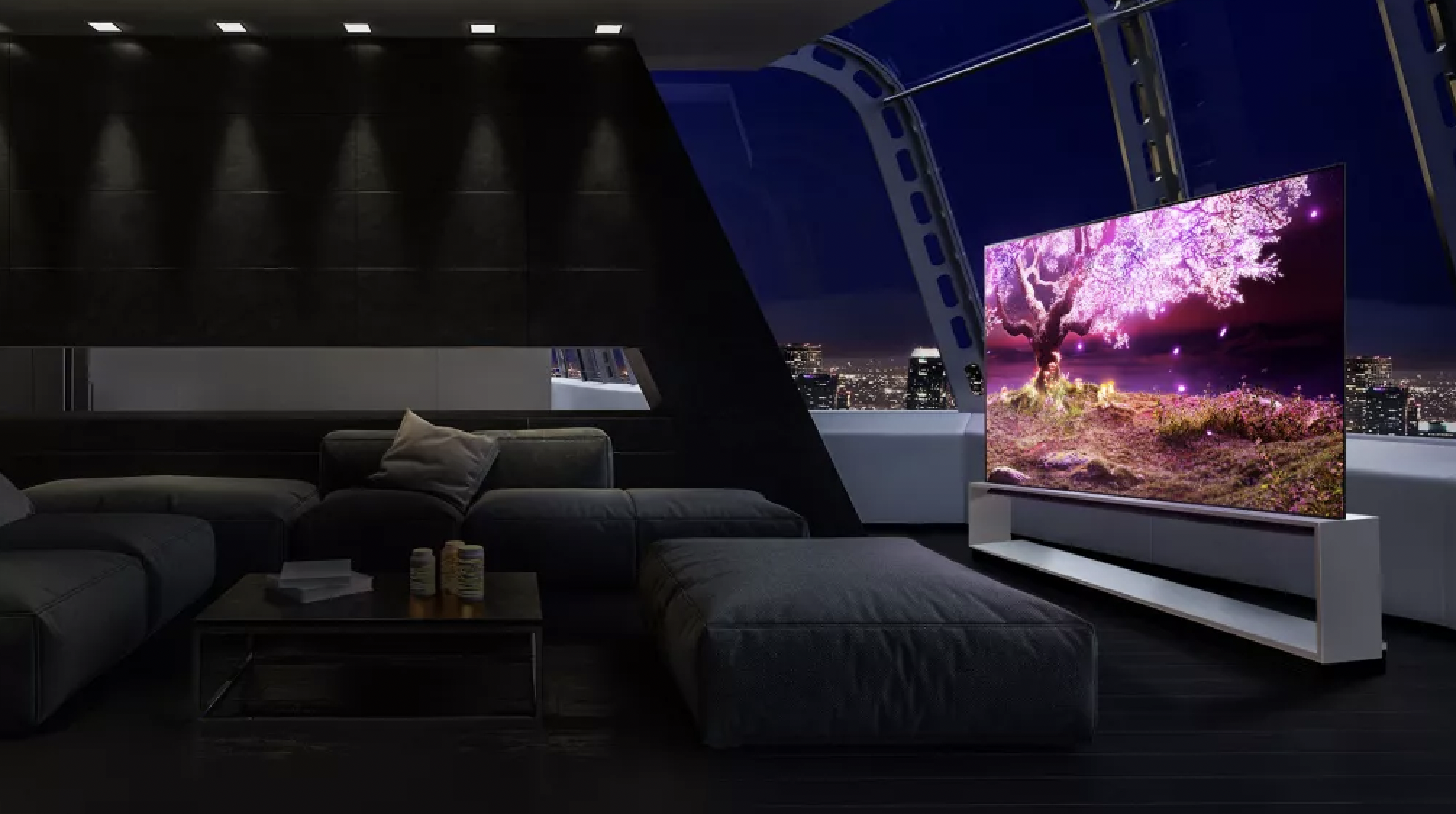
LG just keeps pushing the envelope when it comes to televisions. With its new OLED EX models, the company has found a way to use deuterium—also called “heavy water”—to improve its OLED technology, improving brightness and picture quality while keeping energy consumption low.
Anker Nebula Cosmos Laser 4K Projector
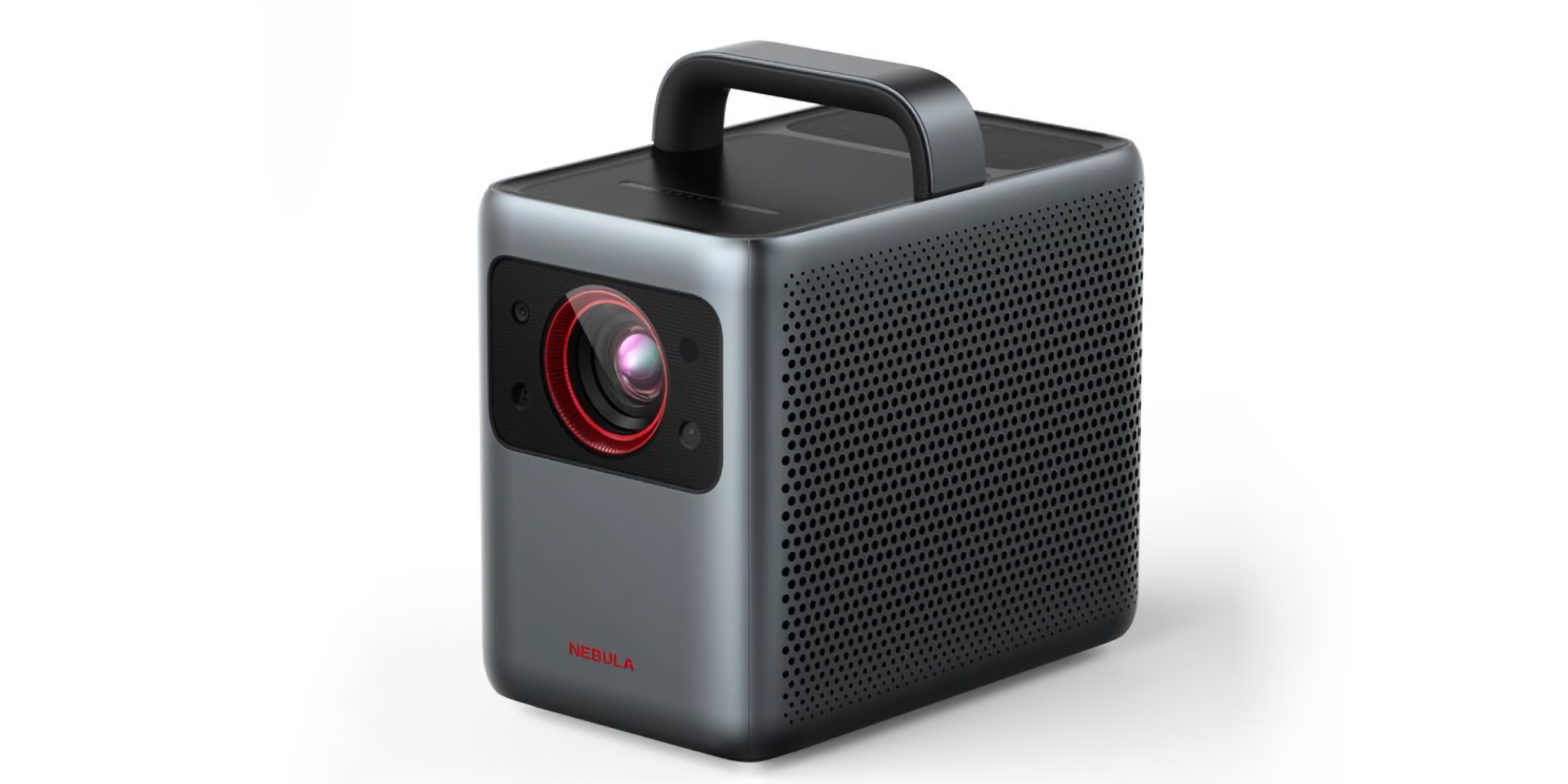
Anker, the company that makes every accessory you could possibly need for your 21st-century life, is back with an upgrade to its much-lauded projector line. And it couldn’t have come at a better time, because the Nebula Cosmos Laser 4K projector might be perfect for everyone who never wants to sit inside a movie theater again. The 4K projector features 2,400 lumens of brightness, so movie night doesn’t have to start at the witching hour, and the built-in 30-watt speakers mean you don’t need extra sound gear. The projector also runs a version of Android, so you can simply install the streaming services you want right on the projector itself. At $2,200, it isn’t cheap, but since when has a good projector been cheap?
More Must-Reads from TIME
- L.A. Fires Show Reality of 1.5°C of Warming
- Home Losses From L.A. Fires Hasten ‘An Uninsurable Future’
- The Women Refusing to Participate in Trump’s Economy
- Bad Bunny On Heartbreak and New Album
- How to Dress Warmly for Cold Weather
- We’re Lucky to Have Been Alive in the Age of David Lynch
- The Motivational Trick That Makes You Exercise Harder
- Column: No One Won The War in Gaza
Write to Patrick Lucas Austin at [email protected]